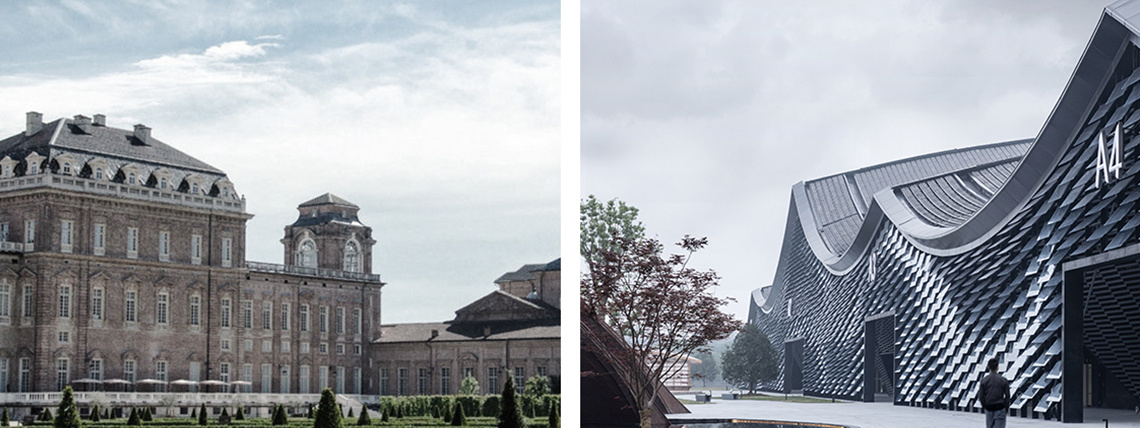The articles of the current edition are available on the new site.

Hosted by the MAO-Oriental Art Museum of Turin at the exhibition "China Goes Urban. The City to Come", the "Sino-Italian Urban Quality Platform", a permanent platform on urban quality, was presented online as a result of the collaboration between the Politecnico di Torino and Tsinghua University aimed at strengthening the already solid relations between China and Turin on city development. The two universities held the presentation event as a round table, together with Fondazione Torino Musei, Intesa Sanpaolo and TOChina Hub.
Starting from the numerous collaborations between Tsinghua and PoliTO in the last decade, the Sino-Italian Urban Quality Platform aims to consolidate the positioning of Turin's stakeholder system in China, which includes academic, business and cultural institutions. The inaugural roundtable of the platform was an opportunity to discuss the ways in which Italian and Chinese academic institutions, together with their economic and cultural counterparts, experiment urban transformation practices that place life quality at the top of both business and political agendas.
After an introduction by the organizers and the greetings of the Italian Embassy in Beijing and the Embassy of the People's Republic of China in Rome, the meeting unfolded in four panels, moderated by Liu Jian (Tsinghua University) and Michele Bonino (Vice-Rector PoliTO).
The panel "Cultural Institutions and Urban Quality" discussed the relationship between city and culture facing the current digital transformation. The involved speakers were Franco Amadei (Director, Istituto Italiano di Cultura, Italian Embassy in Beijing), Gian Maria Gros-Pietro (President, Intesa Sanpaolo), Marco Guglielminotti (Director, MAO Museo d'Arte Orientale) Francesco Profumo (President, Fondazione Compagnia di San Paolo), Su Dan (Director, Art Museum of Tsinghua University).
The panel "University and Urban Quality" focused on multidisciplinary knowledge as a resource for urban transformation scenarios, between research and practice, thanks to the speeches of Paola Gribaudo (President, Accademia Albertina di Belle Arti di Torino), Silvia Sabato (Senior Expert Strategic and International Development, Centro di Restauro della Venaria Reale), Guido Saracco (Rector, Politecnico di Torino), Stefania Stafutti (Delegata del Rettore, Università degli Studi di Torino), Zhang Li (Dean, Faculty of Architecture, Tsinghua University).
"Entrepreneurs and Urban Quality" was the title of the third panel, which hosted a discussion on how entrepreneurship and social innovation can improve urban life. Participants included Guido Bolatto (Secretary General, Turin Chamber of Commerce), Stefano Buscaglia (Director, Links Foundation), Giorgio Garuzzo (Co-Founder, Garuzzo Institute for Visual Arts), Qian Yuan (Director, China Vanke Institute of Cities).
Finally yet importantly, the fourth panel named "Architects and Urban Quality" discussed the perspecive alliance between citizens and designers in urban transformation practices. This panel involved Luca Ballarini (President, Torino Stratosferica), Beatrice Coda Negozio (CAF Italy-China Architects Forum) Elena Dellapiana (President, Torino Urban Lab), Cristina Coscia (President, Ordine degli Architetti di Torino), Philip Yuan (Principal Architect, Archi-Union, and Tongji University).
The roundtable was also an opportunity to establish a bridge between the exhibition "China Goes Urban. The City to Come", hosted at the MAO-Museum of Oriental Art in Turin (more information on the dedicated website), and the new exhibition concept "Dream Story. Urban modernity between Italy and China", also curated by the Politecnico di Torino, Tsinghua University and Prospekt Photographers, which is expected to be presented in China in 2022, on the long awaited "Year of Tourism and Culture Italy-China".